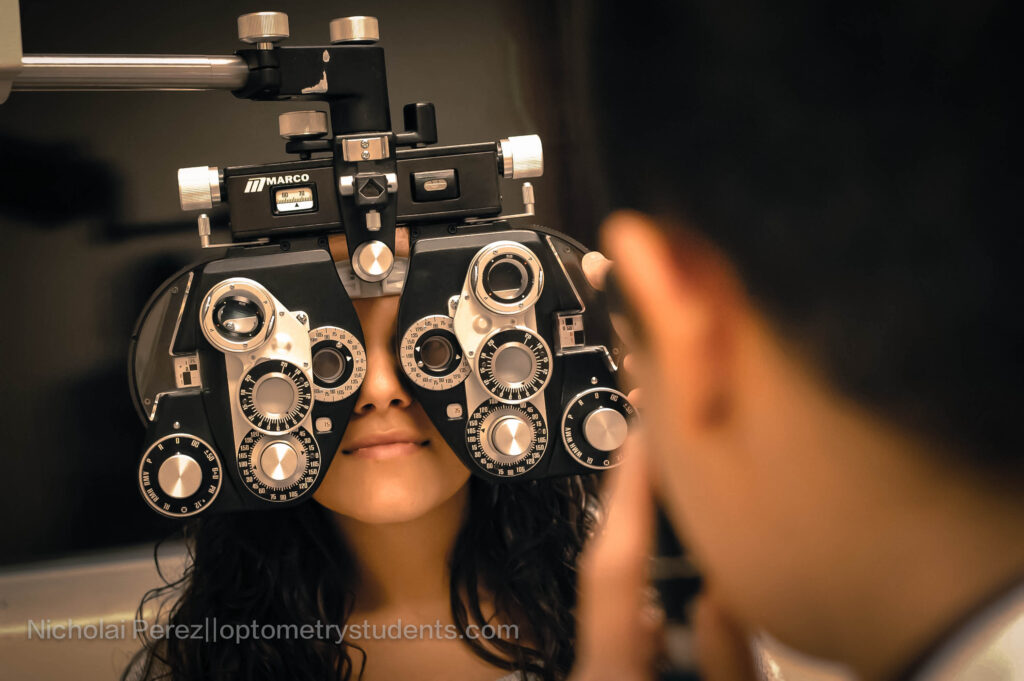University of Waterloo started a sports vision club that has been a hit with students, as they get introduced to this exciting field! The club offers vision screenings to varsity athletes at the University of Waterloo. At the sports vision screenings, there were a surprising amount of athletes that have never been to an optometrist, even though their performance in their sport was highly dependent on vision. Not only is this a great service to athletes, but vision screenings can be a great opportunity for optometrists to gain recognition in the community and build a patient base.
The screening includes a variety of tests: King-Devick, balance tests, visual acuity, contrast sensitivity, color vision, hand-eye coordination, foot-eye coordination and reaction time. Additionally, there is a test that requires the athlete to judge the distance of a moving object, which was designed for racket sports, baseball, and hockey.
Tips for Examining and Prescribing for Athletes:
1.When examining an athlete, it’s important to appreciate the visual demands of their sport and ask questions about the protective equipment that they wear.
2.Athletes should be refracted to the 20/10 line on a high contrast chart.
3.For athletes with refractive error, contact lenses are usually preferred because spectacles will move around and there will be prismatic distortion in the periphery.
4.For athletes that play water sports, daily contact lenses are the best choice. The daily contact lens can be discarded after being worn in the water to reduce the risk of infection. It’s important to teach your client how to locate and remove a dislodged contact lens, especially if they are involved in high impact sports. For swimmers, you could always suggest prescription swim goggles if their prescription is available.
5.For athletes that would prefer LASIK refractive surgery, there is a small risk of flap tears in high impact sports. You should have a discussion about protective eyewear for all athletes in high impact sports.
Conferences like Optometry’s Meeting offer continuing education courses on sports vision, which is a great way to gain knowledge about topics that are not currently offered in your school’s curriculum. Signing up for the AOA Sports Vision Section is an excellent way to get exposed and stay up to date with this new exciting area of vision care. Remember, offering specialty services to athletes is a great way to build a patient base and set yourself apart from other optometrists!
This article was adopted from Dr. Christine Dalton’s article “Prescribing Lenses for Athletic Patients” in the Contact Lens Spectrum Journal. Contact Lens Spectrum, Volume: 29, Issue: May 2014, page(s): 30-32, 34. http://www.clspectrum.com/printarticle.aspx?articleID=111074


